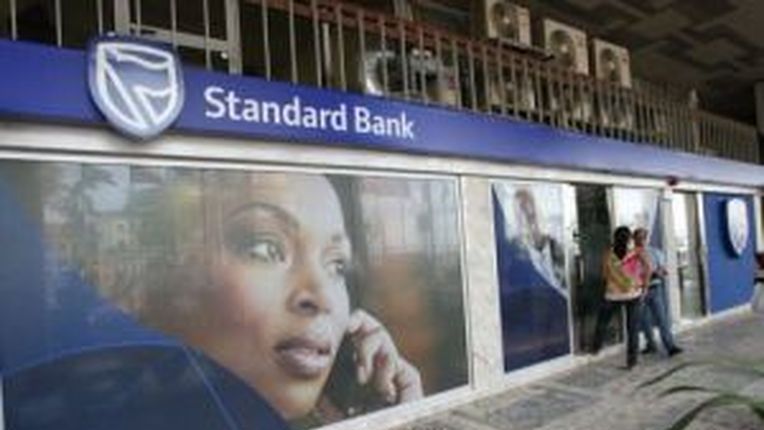Mozambique: Government provides information on LAM every 15 days - Watch
Employment growth nearly stalls in October amid weaker rise in sales – Standard Bank Mozambique PMI

File photo: Lusa
Key findings
- Job numbers rise only fractionally
- New business growth slows to six-month low
- Input cost inflation eases
Business conditions across Mozambique expanded only slightly in October, as firms again registered a slower increase in new work. The weakening of growth almost eradicated hiring gains across the private sector, although output levels increased further. While businesses remained hopeful for the upcoming year, confidence was at one of its lowest levels since late 2020.
The rate of input cost inflation meanwhile slowed to the weakest since July, helped by a softening of wage pressures. Consequently, firms registered a cooler uptick in average prices charged.
The headline figure derived from the survey is the Purchasing Managers’ IndexTM (PMI®). Readings above 50.0 signal an improvement in business conditions on the previous month, while readings below 50.0 show a deterioration.
The headline PMI saw a slight dip in October, falling from 50.3 in September to 50.2. Although still above the 50.0 crucial mark, the index was indicative of only a marginal improvement in private sector business conditions, the weakest for six months.
As has been observed in every month since April, Mozambican businesses raised their activity levels at the beginning of the final quarter of 2024. Survey respondents indicated that output mainly increased due to improved sales and rising client demand. Despite picking up from September, the upturn in output was only marginal.
New work intakes expanded for the ninth month in a row. The rate of growth was moderate and the slowest since April, amid some demand weakness in the service sector.
With sales growth slowing, firms indicated weaker momentum on hiring in October. Total employment was barely changed from the previous survey period, with the overall rise the softest for nine months. Nevertheless, firms signalled they had enough capacity to reduce backlogs of work.
Supply chain conditions remained favourable to Mozambican companies in October, supporting another solid reduction in average delivery times. This helped the restart of material purchases at some companies, although the renewed increase in buying activity was only marginal. Similarly, input stocks rose slightly after stagnating in September.
Softer recruitment activity helped to stave off inflationary pressures at the start of the fourth quarter, as staff expenses rose at the weakest pace since June. Cost burdens were mainly driven by rising purchase prices, where a moderate uplift was registered in October. Nonetheless, the rate of overall input price inflation dipped to a three-month low.
Businesses continued to mark up selling charges in October, but with the pace of increase softening from the previous month and being only mild. Furthermore, it was just in the services and wholesale & retail categories where output charges rose on average.
Regarding future activity levels, Mozambican firms remained generally optimistic in October, with over a third of respondents (36%) expecting an upturn in the next 12 months. Greater investment, branch openings, higher productivity, new customer reaching and improving market conditions were some of the factors driving confidence. That said, overall sentiment fell to one of the lowest levels recorded in the past four years.
Comment
Fáusio Mussá, Chief Economist – Mozambique at Standard Bank commented:
“The Standard Bank Mozambique PMI slipped to a seasonally adjusted level of 50.2 in October, down from 50.3 in September. This mostly reflect a softer growth in new orders and employment, compared with the previous month.
“PMI prints above the 50-benchmark suggest month-on-month growth in economic activity. Nevertheless, the future business expectations sub-index declined for the second month running and slipped to nearly a 4-y low, with the respondents expecting a softer growth in output in the next 12-m.
“Recurrent delays on liquified natural gas (LNG) projects imply that foreign direct investment (FDI) will likely remain low, which implies limited support to foreign exchange supply and to fiscal spending, and softer GDP growth.
“We maintain our views that GDP growth will decelerate to 3.6% y/y this year, from 5.4% y/y last year, as favourable base effects, from the LNG production ramp-up at Coral South FLNG platform, will likely abate. Furthermore, this economy faces intermittent foreign exchange supply, persistent fiscal pressures, tight financing conditions and subdued investment.
“The ongoing tense post general election environment could prompt the Banco de Moçambique to adopt a more prudent approach to monetary policy normalization.
“Therefore, we do not rule out a pause on policy rate cuts. The MIMO policy rate has been cut by a cumulative 375 basis points (bps) since the beginning of the year to the current level of 13.5%, but with real interest rates remaining elevated as inflation has declined at a faster pace, last reported at 2.5% y/y in September. This, alongside cash required reserves remaining unchanged and high, subdues credit growth.”












Leave a Reply
Be the First to Comment!
You must be logged in to post a comment.
You must be logged in to post a comment.